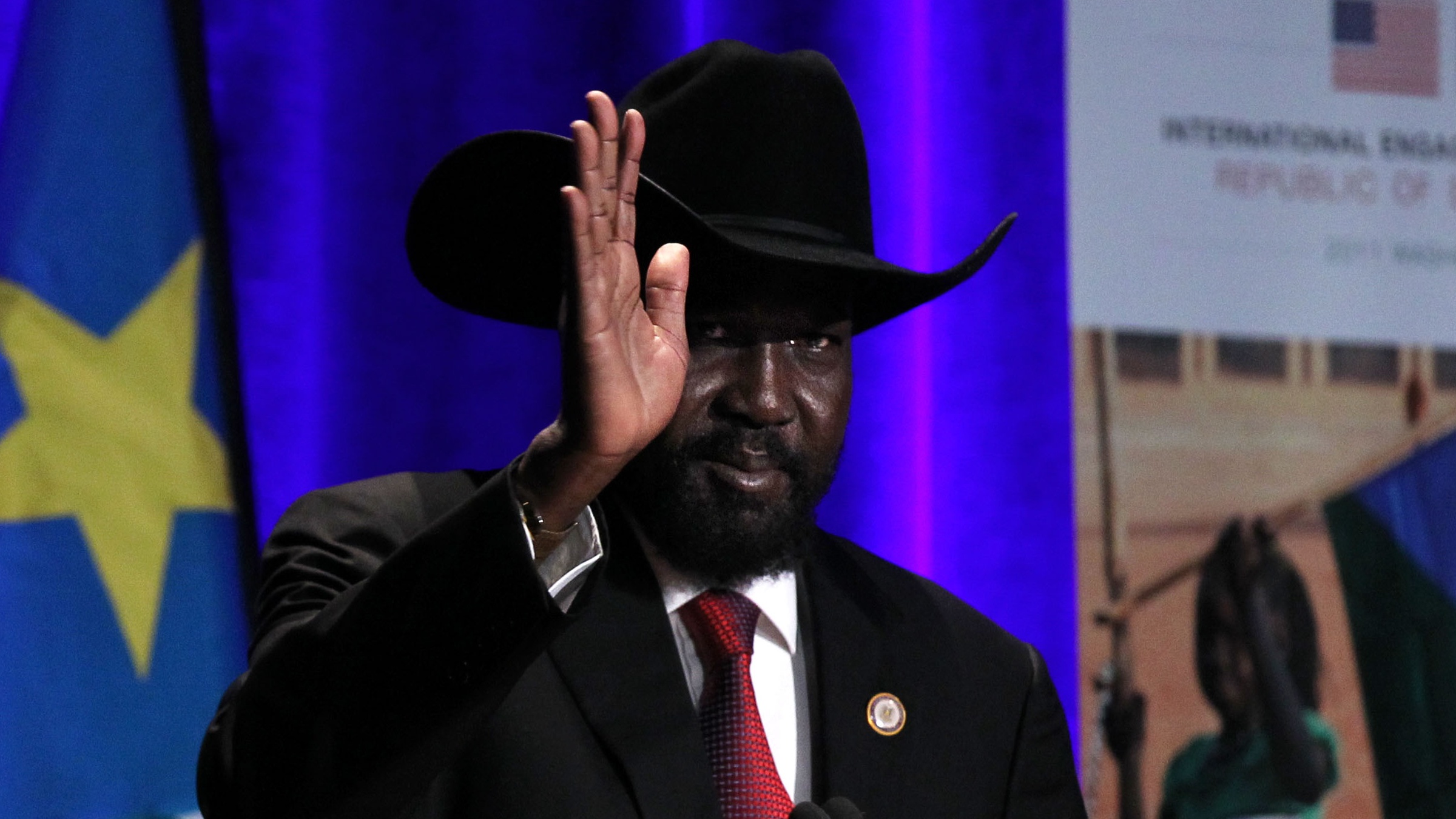Peace talk politicians kicked out of hotels over $50m unpaid bill
Hundreds of South Sudanese officials have lived in luxurious establishments for years during failed negotiations

A free daily email with the biggest news stories of the day – and the best features from TheWeek.com
You are now subscribed
Your newsletter sign-up was successful
Hundreds of politicians and officials are being kicked out of hotels in South Sudan after running up massive bills while more than half of the country’s population depends on humanitarian aid.
Up to 300 representatives who have “lived in luxury” in Juba during peace talks are being ejected after “warnings to the government about mounting debts” totalling around $50m (£36.4m) “went ignored”, reports The Times.
Kot Maker, manager of the capital’s luxurious Royal Palace Hotel, told the paper how he had shut off power and water in a bid to force out guests who had lived there for three years without settling their accounts.
The Week
Escape your echo chamber. Get the facts behind the news, plus analysis from multiple perspectives.

Sign up for The Week's Free Newsletters
From our morning news briefing to a weekly Good News Newsletter, get the best of The Week delivered directly to your inbox.
From our morning news briefing to a weekly Good News Newsletter, get the best of The Week delivered directly to your inbox.
Maker said: “We have no gun. We have to pursue them, we have to talk to them politely, we have to convince them to leave peacefully, because if they refuse we have to call the police in.”
The ejected guests see things very differently. One described the hotel managers’ behaviour as “inhumane”, telling Voice of America: “We feel so bad that we have been thrown out at the end and nobody is taking care of us from now on.”
The row comes less than two months after humanitarian groups warned that South Sudan was facing a “catastrophic” conflict-fuelled famine. In a joint statement, UN agencies including the World Food Programme said that 6.5 million people were facing severe food insecurity, with that total projected to increase to 7.24 million by July - equivalent to more than 60% of the population.
As The Times reports, “South Sudan’s 11 million people have barely known peace since the country won independence from Sudan a decade ago”.
A free daily email with the biggest news stories of the day – and the best features from TheWeek.com
Corruption and mismanagement have triggered an economic crisis in the oil-rich state, while a five-year battle for power has caused about 400,000 deaths and displaced millions.
Members of the ruling party, a “string of opposition groups” and army generals have been “wrangling” at peace talks in Juba for years in a bid to find a resolution, The Australian says.
Although President Salva Kiir Mayardit and Riek Machar, his former deputy-turned-bitter enemy, have reached a dozen peace agreements, none has delivered a permanent end to the fighting.
Chas Newkey-Burden has been part of The Week Digital team for more than a decade and a journalist for 25 years, starting out on the irreverent football weekly 90 Minutes, before moving to lifestyle magazines Loaded and Attitude. He was a columnist for The Big Issue and landed a world exclusive with David Beckham that became the weekly magazine’s bestselling issue. He now writes regularly for The Guardian, The Telegraph, The Independent, Metro, FourFourTwo and the i new site. He is also the author of a number of non-fiction books.
-
 Political cartoons for February 14
Political cartoons for February 14Cartoons Saturday's political cartoons include a Valentine's grift, Hillary on the hook, and more
-
 Tourangelle-style pork with prunes recipe
Tourangelle-style pork with prunes recipeThe Week Recommends This traditional, rustic dish is a French classic
-
 The Epstein files: glimpses of a deeply disturbing world
The Epstein files: glimpses of a deeply disturbing worldIn the Spotlight Trove of released documents paint a picture of depravity and privilege in which men hold the cards, and women are powerless or peripheral
-
 Epstein files topple law CEO, roil UK government
Epstein files topple law CEO, roil UK governmentSpeed Read Peter Mandelson, Britain’s former ambassador to the US, is caught up in the scandal
-
 Iran and US prepare to meet after skirmishes
Iran and US prepare to meet after skirmishesSpeed Read The incident comes amid heightened tensions in the Middle East
-
 Israel retrieves final hostage’s body from Gaza
Israel retrieves final hostage’s body from GazaSpeed Read The 24-year-old police officer was killed during the initial Hamas attack
-
 China’s Xi targets top general in growing purge
China’s Xi targets top general in growing purgeSpeed Read Zhang Youxia is being investigated over ‘grave violations’ of the law
-
 Panama and Canada are negotiating over a crucial copper mine
Panama and Canada are negotiating over a crucial copper mineIn the Spotlight Panama is set to make a final decision on the mine this summer
-
 Why Greenland’s natural resources are nearly impossible to mine
Why Greenland’s natural resources are nearly impossible to mineThe Explainer The country’s natural landscape makes the task extremely difficult
-
 Iran cuts internet as protests escalate
Iran cuts internet as protests escalateSpeed Reada Government buildings across the country have been set on fire
-
 US nabs ‘shadow’ tanker claimed by Russia
US nabs ‘shadow’ tanker claimed by RussiaSpeed Read The ship was one of two vessels seized by the US military